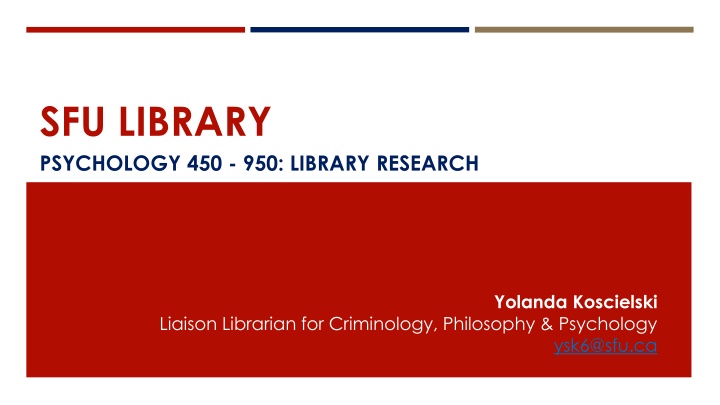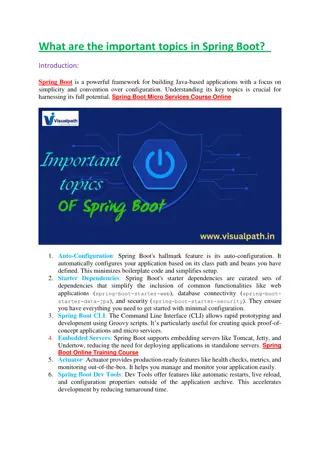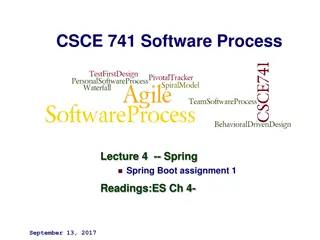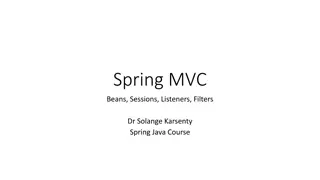
Efficient Strategies for Psychology Research at SFU Library
Discover valuable insights on where and how to search for psychology resources, including books, articles, and other information sources, with tips on utilizing SFU Library's catalog search and Google Scholar effectively.
Download Presentation

Please find below an Image/Link to download the presentation.
The content on the website is provided AS IS for your information and personal use only. It may not be sold, licensed, or shared on other websites without obtaining consent from the author. If you encounter any issues during the download, it is possible that the publisher has removed the file from their server.
You are allowed to download the files provided on this website for personal or commercial use, subject to the condition that they are used lawfully. All files are the property of their respective owners.
The content on the website is provided AS IS for your information and personal use only. It may not be sold, licensed, or shared on other websites without obtaining consent from the author.
E N D
Presentation Transcript
SFU LIBRARY PSYCHOLOGY 450 - 950: LIBRARY RESEARCH Yolanda Koscielski Liaison Librarian for Criminology, Philosophy & Psychology ysk6@sfu.ca
OUR AGENDA Finding resources for PSYC Where to search Information sources Search strategies Further help (with citations, writing, research) https://i.pinimg.com/originals/de/32/89/de32896d6903b303071c14c42c09e2a8.jpg
FINDING RESOURCES Where to search Types of information sources Books, ebooks, book chapters Journal articles Background sources (encyclopedias) Magazines, newspapers Government reports & information Reports from industries, NGOs, associations Law, legal cases, court transcripts Videos, audio, images Datasets Maps & spatial data Others? Library Search / Catalogue Search Google Scholar Subject-Specific databases Others? Start at the Psychology Research Guide!
FINDING BOOKS AND ARTICLES Catalogue Search Broad/preliminary searches Covers all the library s books, ebooks, A/V Searches many (but not all) databases Library Search All of the above, plus searches research guides, FAQs, digitized collections, Summit
USING LIBRARY/CATALOGUE SEARCH Strengths: Very comprehensive scope of books, articles, government reports, etc. Search for books and articles at the same time. Use of filters to narrow down results, including by date, type of resource, subject, etc. Excellent for book searching, including searching by subject headings. Tip: Browse Search Good for: do we have it? * Weaknesses: *Searches many - but not all- of the database content Not mapped to a specific discipline, with associated helpful search limiters and features (controlled vocabularies, populations, etc.) Many, many results
USING GOOGLE SCHOLAR Strengths A high volume of articles are retrieved & the most popular articles are revealed Google's algorithm helps compensate for poorly designed searches Times cited tool can help identify relevant articles Excellent for known-item searching and helpful when searching for very unique terminology (e.g., places and people) Extensive searching of non-article, but academic, information items: universities' institutional repositories, US case law, grey literature, academic websites, etc.
USING GOOGLE SCHOLAR Weaknesses Database is not mapped to a specific discipline (challenging to run searches with common words) Much less search sophistication & manipulation supported (Psuedo-Boolean operators) Mysterious algorithms & unknown source coverage at odds with the systematic and transparent mandate of a literature review. Searches are optimized (e.g. by location), thwarting replicability criteria of many literature reviews Missing deep data (e.g., statistics) New articles might not be pushed up if the popularity of an article is emphasized Definition of scholarly is broad, so it Indexes articles from disreputable publishers Articles are not usually free just the indexing
FINDING KNOWN ARTICLES Finding articles by citation: Example: Scelza, B. (2009) The grandmaternal niche: Critical caretaking among Martu Aborigines. SFU Citation Finder & American Journal of Human Biology : The Official Journal of the Human Biology Council, 21(4), 448-54. Interlibrary Loans & Search by journal
USING SUBJECT SPECIFIC DATABASES Strengths Mapped to a disciplinary perspective High quality metadata Search limiters unique to discipline, allow fine-tuning of search results Search history and search sets Subject headings that are key to a lit review Weaknesses More time-consuming to use More particular / technical to search (varies)
KEY PSYCHOLOGY RESOURCES PsycINFO: Comprehensive psychology-related database. PsycTESTS: Psychological tests, measures, scales, surveys, and other assessment tools. In most cases actual test or test items provided, but without scoring key information. PsycBOOKS: Scholarly and classic psychology ebooks and reference material (handbooks, encyclopedia articles), including APA handbooks Annual Review of Psychology: In publication since 1950, covers the significant developments in the field of psychology Oxford Bibliographies Online: Lists key books, articles, and other sources on a wide variety of subjects. Psychology module included.
OTHER DISCIPLINARY DATABASES Anthropology Plus: Journal articles, reports, commentaries, edited works, and obituaries in social, cultural, physical, biological, and linguistic anthropology, ethnology, archaeology, folklore, material culture, and interdisciplinary studies. Bibliography of Native North Americans: More than 80,000 citations for books, essays, journal articles, and government documents on all aspects of Native North American culture, history, and life. ProQuest Sociology Collection: International literature in sociology and social services, and related fields. Web of Science: Multidisciplinary database, including coverage of psychology, law, labour, gender, political science, policy, sociology & more. SFU Library Databases
WORKING YOUR TOPIC Do you have a subject area, topic, or thesis? Subject is very broad: freedom of information, recidivism Topic adds a second concept, explores a relationship or question between the two concepts: testosterone levels in sex offenders, effect of art therapy on recidivism Thesis: you are making an assertion and providing supportive evidence: Art therapy decreases recidivism in young offenders
WORKING YOUR TOPIC 1. Write a question about your research topic 2. Next, think of synonyms, plus broader, narrower and related terms for each of your concepts Ex: What is the impact of art therapy on recidivism in young offenders? Art Therapy Recidivism Young offenders PRACTICE ON WORKSHEET Music (keyword) Drawing (keyword) Art therapy (keyword) Creative Arts Therapy (SH) Poetry therapy (SH) Dance therapy (SH) Recreation therapy (SH) Treatment (BT) Recidivism (SH) Repeat offender (key word) Serial crime (RT) Criminal Offenders (SH)* *as of 2019, no longer Criminals Young or youth offenders (keywords) Juvenile Delinquents (PsycINFO subject heading) Female delinquency (NT) Predelinquent youth (RT) Juvenile gangs (RT)
SEARCH STRATEGIES Identifying keywords Cycling a search Finding better words as you go Mining bibliographies of articles Pearl growing or snow balling Keywords vs subject headings Find articles ABOUT your topic rather than ones that just mention it Boolean searches AND / OR searching Research Concepts Worksheet
SEARCH STRATEGIES Use AND between keywords to narrow your search For example: recidivism AND youth Use OR between keywords to broaden your search For example: dance therapy or art therapy or music therapy Use quotation marks around an exact phrase For example: young offender Use an asterisk (*) to find related terms For example: Canad* will get results for: Canada, Canadian, Canadians
BOOLEAN SEARCHING: AND/OR A AND B A B A OR B
WORKING WITH SUBJECT HEADINGS A systematic, hierarchical, and finite language used for describing subjects/concepts. Articles and books will usually have 3-8 subject headings assigned to their bibliographic record. Subject heading languages will usually be unique to each database MeSH (Medical Subject Headings) for PubMed PsycINFO thesaurus for PsycINFO
SEARCH STRATEGIES Art therapy AND criminals Criminals AND recidivism Art therapy AND recidivism AND young offenders Art therapy
APA CITATION STYLE 7TH EDITION Note: APA just released the 7th edition of the APA Style Guide in late 2019. This is the first new edition in 10 years. Rollout is gradual. (See Psychology Guide Citing and Writing) The official APA Style Blog (7th edition - current) APA's Introduction to the 7th edition APA 7th edition guide to Bias-Free Language Notable to Changes to APA Style (infographic)
WHERE TO GO FOR HELP Research help desk (drop-in & by appointment) Yolanda Koscielski ysk6@sfu.ca Phone: 778.782.4345 778-872-3315 Email us at: libask@sfu.ca AskAway (online chat)









